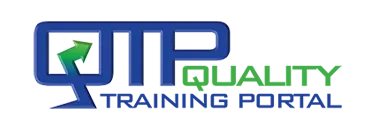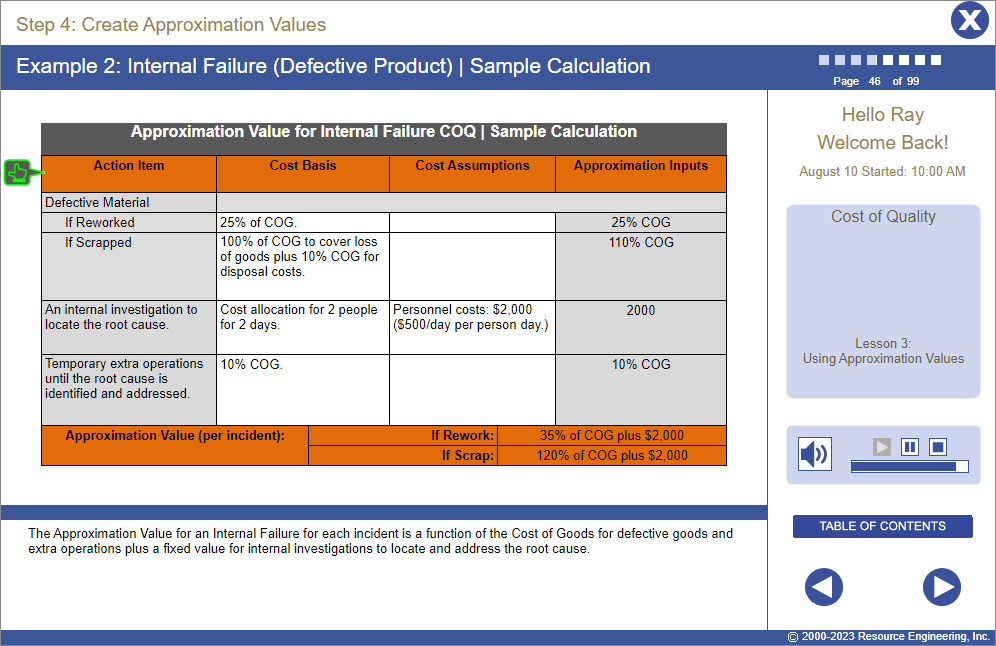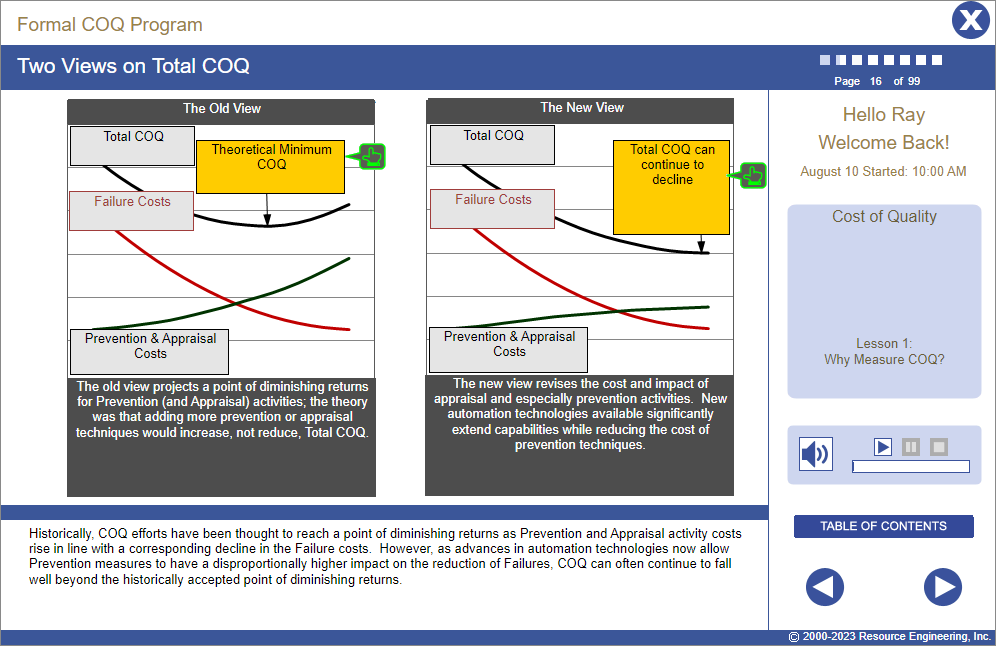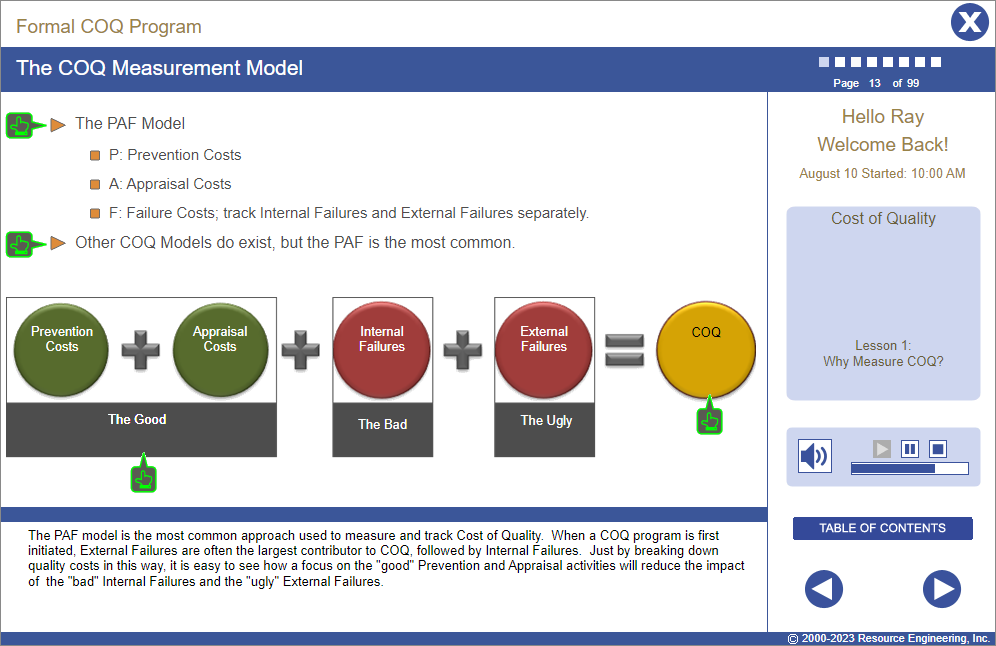Course Information
Cost of Quality Training
Learners will be able to:
- Design and implement a COQ program.
- Monitor COQ performance metrics.
- Focus on metrics with the greatest impact.
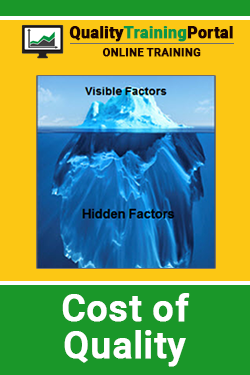
About This Course
Is a COQ Program essential? No, but it is important. Why? Let’s look at two well-known quotes:
“If you can’t measure it, you can’t improve it.” | Peter Drucker
“In God we trust, all others must bring data.” | W. Edwards Deming.
Drucker means that we cannot know if we are successful unless we have defined what success “looks like” and then measure and monitor our performance against our definition. Deming adds an important dimension: We need data, not hunches or opinions to properly understand how we are doing. Unless we can develop a reliable means to collect and quantify performance, we don’t really know how we are doing. Without data, we are just guessing.
So what can a COQ Program do for us? A COQ Program can:
- Let us know (approximately) how much it costs (as a % of sales) to prevent quality defects, detect them if they occur and recover from substandard quality issues
when they do take place. - Help us identify the processes, products or services that have the greatest impact on COQ.
- Effectively track and monitor COQ % over time so we can see if our efforts to reduce COQ are working.
Cost of Quality provides an excellent means to measure and track costs associated with poor quality, quality improvement and quality control. But, it requires commitment from a wide range of functions throughout an organization. These groups need to have a common understanding of COQ and need to work together to establish meaningful measures. Cost of Quality online training assures the team responsible for Cost of Quality is all on the same page. Upon completing the training, team members will be able to work together to identify sources of COQ data, agree on standards for approximation values and develop a plan for regular COQ reporting. Participants will also be able to use the data to identify and prioritize improvement projects.
- None.
- English (EN-US)
- Chinese (simplified) (ZH)
- Czech (CS)
- French (FR)
- German (DE)
- Italian (IT)
- Japanese (no audio) (JA)
- Korean (no audio) (KO)
- Polish (PL)
- Portuguese (Brazilian) (PT-BR)
- Romanian RO)
- Russian (RU)
- Spanish (ES)
- Vietnamese (no audio) (VI)
Course Objectives
- Establish a comprehensive COQ program.
- Measure and track COQ performance and progress.
- Prioritize improvement targets.
- Ensure the program is both meaningful and sustainable.
Course Outline
Lesson 1 | Why Measure COQ
- Understand the value of measuring and tracking Cost of Quality.
- Acknowledge and recognize “hidden” Costs of Quality.
- Understand the PAF Model for measuring COQ.
- Realize the significance Prevention activities play when striving to reduce COQ.
Lesson 2 | Calculating Cost of Quality
- Recognize the importance of gaining commitment for a COQ effort from Process Owners.
- Realize the valve of involving the Financial Department right at the start.
- Understand the sources of data for COQ measures.
- Be able to group COQ data into appropriate PAF categories.
Lesson 3 | Using Approximation Values
- Know how to use “Approximation Values” for COQ inputs.
- Be able to calculate Cost of Quality for each of the PAF categories and convert those inputs into COQ %.
- Understand how to develop a COQ Reporting and Tracking System.
Lesson 4 | Reducing COQ
- Understand how to effectively track COQ performance.
- Be aware of the need to use data to prioritize improvement targets.
- Realize the importance of addressing the root cause or source of problems.
- Be able to apply the PDCA cycle to COQ efforts.
Lesson 5 | COQ Tips
- Be aware of tips that can help improve and sustain a COQ initiative.
Challenge
- An assessment of the learner’s progress in this course.

4.6 out of 5 stars
Comments from Learners About This Course
- Overall a good overview of COQ that is beneficial for understanding some of the “behind the scenes” aspects of quality.
- Good information, I appreciated the easy to understand concepts.
- Well organized course.
- I am impressed. Such an useful course.
- Excellent course for advanced quality management.
- Very good overview.
You may also be interested in…
- Root Cause Analysis with Corrective Action – Leads the learner through a four-step process to get to the root cause (source) of problems to eliminated problems for good.
- Introduction to COQ – An overview course ideal for people who need to understand the basic terminology and concepts of COQ, but will not be involved in calculating or maintaining the data.
